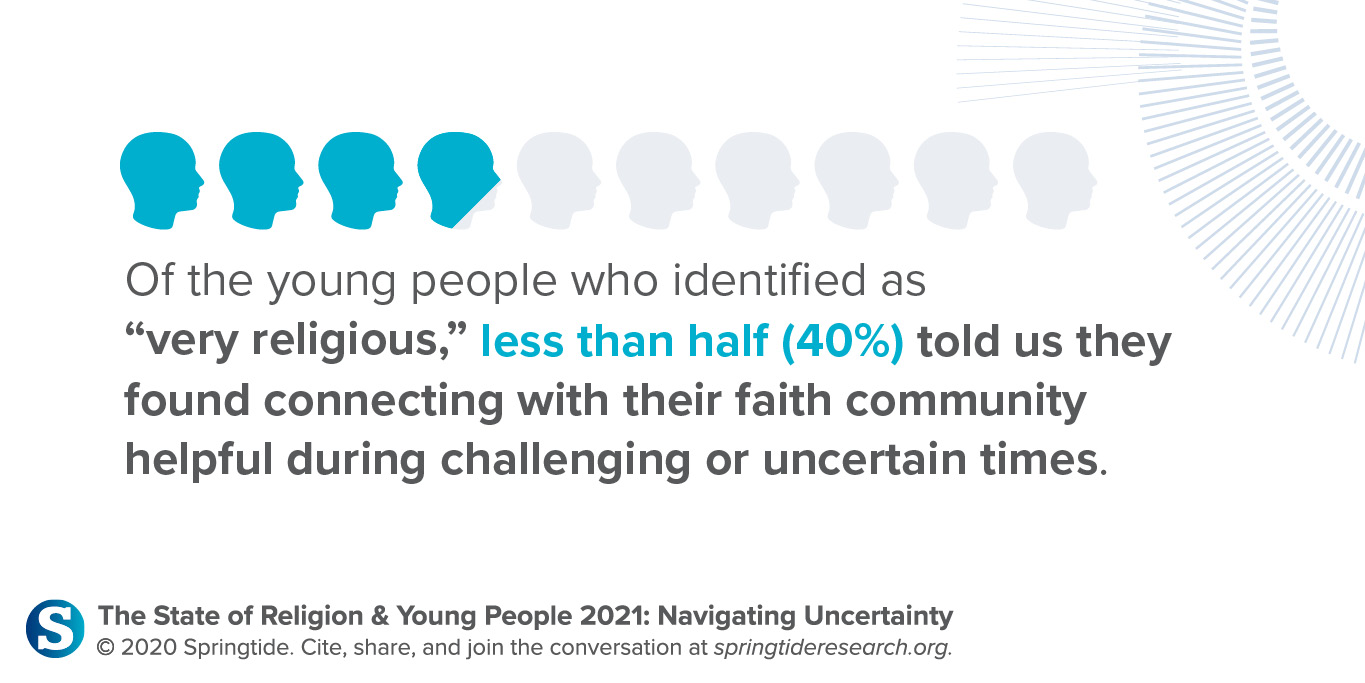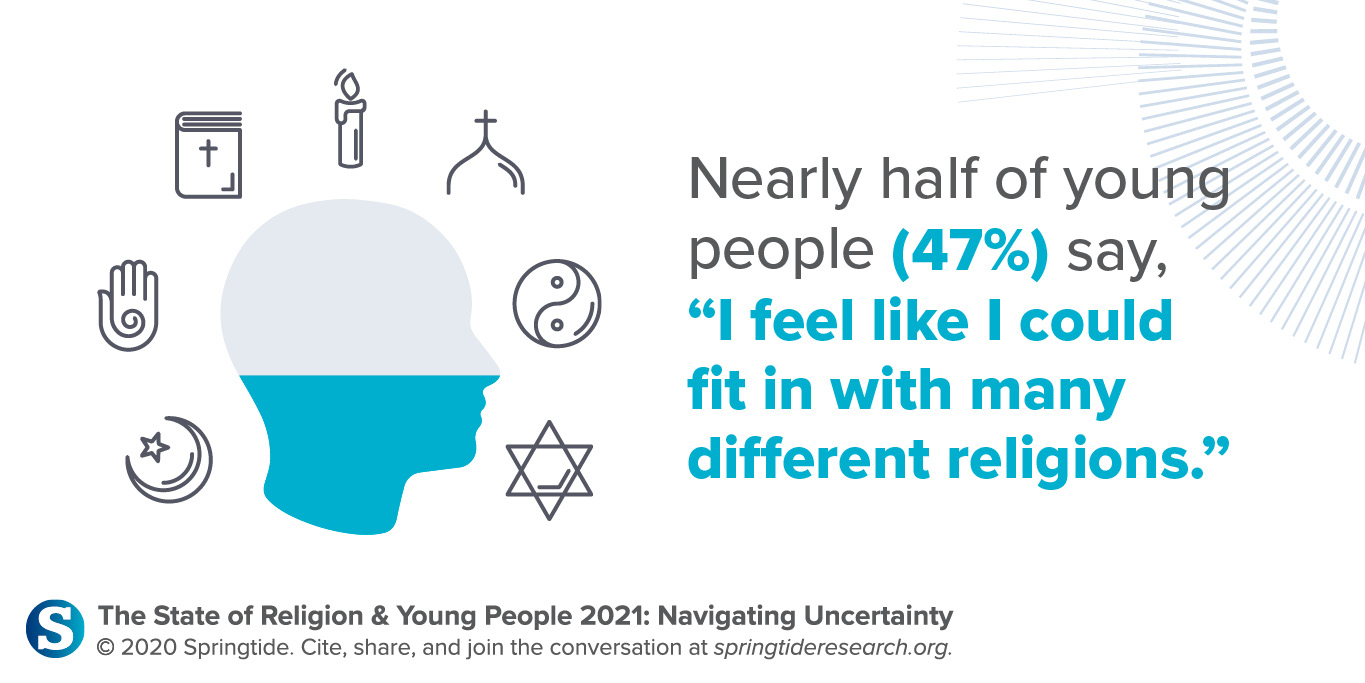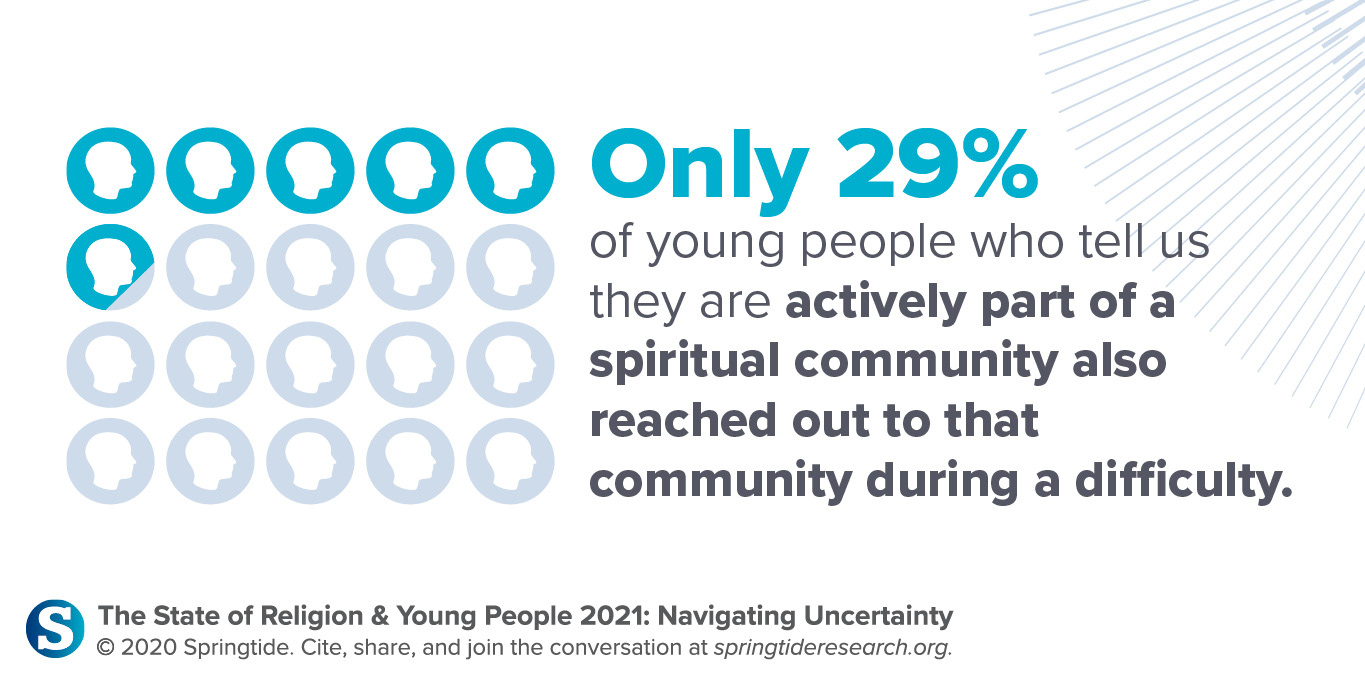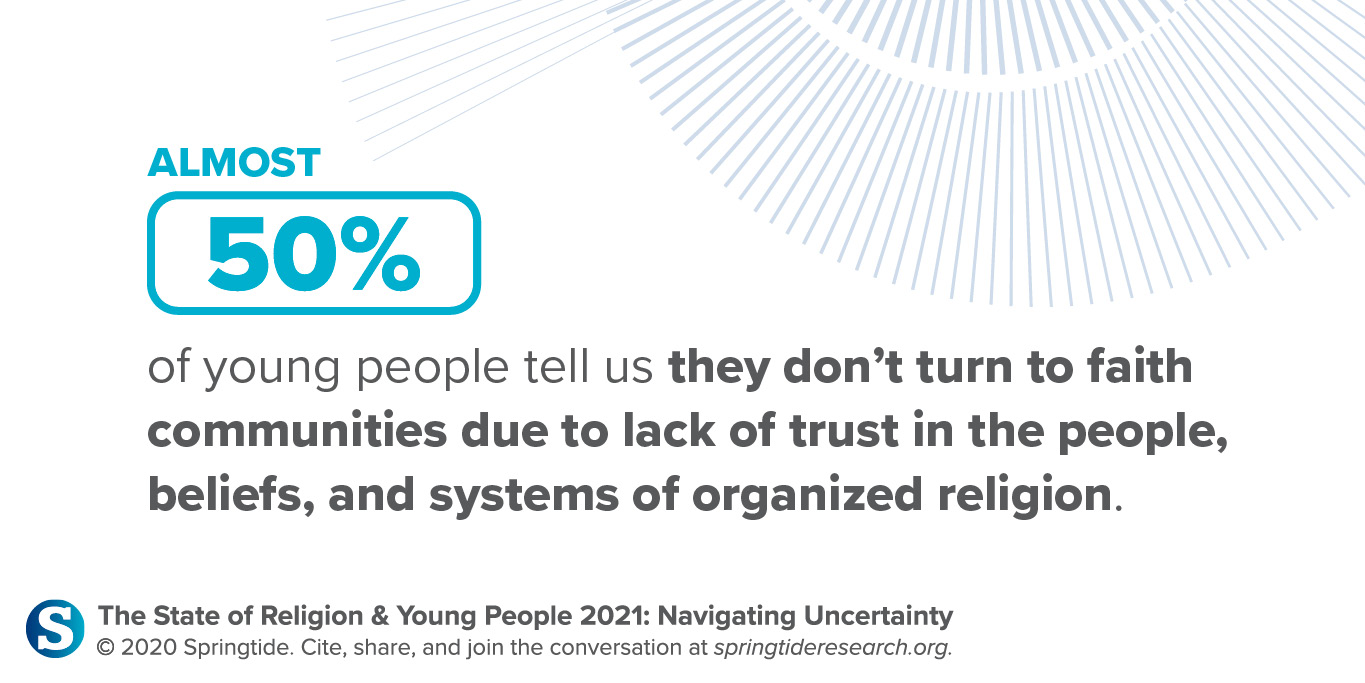Gen Z and Religion – What The Statistics Say
A common misconception about young people, and Gen Z in particular, is that they are moving away from belief in a higher power and no longer claim any sort of religious or spiritual ties. After surveying and interviewing thousands of young people, our data show that is definitely not the case. Here are five findings from our 2021 report that show what religion and spirituality really look like for Gen Z.
- Most young people consider themselves religious or spiritual—just not tied to an institution. When asked how they identified, almost a quarter of the young people we surveyed said “just Christian.” This aligns with a growing trend that suggests young people still identify with faith traditions—even ones that may be considered traditional —but they don’t claim affiliation with any specific place of worship or formal structure (like a denomination). It also shows that young people see value in belief.
- Almost half of the young people we surveyed believe in the existence of a higher power at some level, but they don’t just believe in a higher power. They also say that they feel connected to nature (52%) and all of humanity (39%). This is part of young people’s movement toward several sources of elements of faith, rather than just traditional religious institutions.
- Identifying with a particular religion or spirituality doesn’t mean they’re limited to certain practices. More than half of young people say they never or rarely attend a religious service, but they do report engaging at least weekly in a few activities they consider religious or spiritual practices, including engaging in or with art (53%), praying (45%), reading (45%), or being in nature (40%). Young people value the exploration of many practices to determine how exactly their faith intertwines with everyday life.
- Many young people say their faith remained steady during the pandemic. While 27% say they began to doubt their faith or lost it completely over the last couple of years, 26% said their faith grew stronger during that time. Yet that didn’t reverse the trends already in place—the rates of young people attending religious services, in person or online, declined faster during the pandemic.
- But for young people of faith, a majority agree that religious or spiritual life matters for mental health. In data collected in the past two years, more than half of young people say that the biggest challenge of the pandemic for them was their mental health. Yet those who identified as religious or spiritual say their faith practices positively impacted their mental health. Those who claimed to be “very religious” reported the highest rates of positive mental health. Young people recognize that faith identity and practice can have a major impact on mental health.
Gen Zers have a great desire for connection, and that includes how they relate to and connect with a higher power and the world around them, but the path to those connections may not be as linear as it was for past generations. They explore the boundaries of their faith, and enjoy the journey toward finding their unique relationship to the Divine.
Want to know the stats for 2022? Join us for our virtual Conference on Gen Z, Mental Health, and Religion on October 19 to learn about our newest insights on young people and how the adults around them can take action to create environments that are mental-health friendly.










